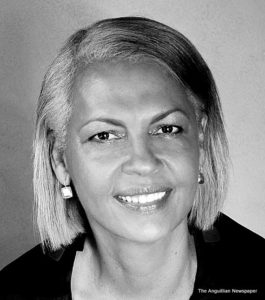
The question of leadership has been at the centre of many political discussions and debates in Anguilla for as long as we can remember. Two questions often asked are: What makes a good leader? Who is going to lead?
An ongoing debate in the literature is whether leaders are born or whether they are made, or perhaps a combination of the two. These questions stir up interesting conversation and reflection but, if we are not careful, we can talk ourselves into a frenzy without a proper understanding of the type of leadership that we need in Anguilla at this critical moment in our political and developmental history.
Our perceptions of leadership are deeply rooted in the way we have been socialized as a people. Gender roles have perpetuated a high level of patriarchy in Anguilla and most of the Caribbean. Religious beliefs and teachings often refer to the female as “the weaker sex” and sometimes perpetuate the theory that a “woman’s place is in the home”. Such labelling has made it difficult for some women to realize their full potential and, if not addressed, can lead to gender bias and discrimination in our society.
While some barriers continue to present challenges, I am proud of the women who have paved the way for us to understand our worth, and to assert our right to participate and thrive in Anguilla society. The women of the revolution had equal importance in our fight for self-governance and determination. Their heroic efforts should never be understated, because without the support and strength of these women the Anguilla Revolution would still be a pipe dream today. Thus, women should and must have an equal place in the leadership direction of our country, since we are equal participants in failures and successes.
A proper reflection on leadership and governance in Anguilla would reveal a dire situation. What we believe to be strong leadership is really empty bravado and grandstanding. And what we accept as proper governance is really autocracy – where one man has absolute power and wields that power to the detriment of the majority. This is something that has been accepted for too long, partially because we were groomed and conditioned to believe that this is the norm and this is what is expected. However, we have all suffered as a result and we must be extremely careful that we do not exchange one autocratic leader for another – the wolves in sheep’s clothing are all around us.
Anguilla yearns for Transformational Leadership; a leadership style that that is widely recognised and is a theory of leadership where a leader works with teams to identify needed change, creating a vision to guide the change through inspiration, and executing the change in tandem with committed members of a group. According to Horst Bergmann, Kathleen Hurson and Darlene Russ-Eft, in their book “Everyone a Leader”, it is a grass-roots model involving every mind. It is a leadership approach I believe in. It advocates for changing individuals and social systems. In its ideal form, it creates valuable and positive change in the followers, with the end goal of developing followers into leaders. Implemented in its authentic form, transformational leadership enhances the motivation, morale and performance of followers through a variety of mechanisms. These include:
• connecting the follower’s sense of identity and self to the mission;
• being a role model for followers that inspires them;
• challenging followers to take greater ownership for their contribution; and
• better understanding the strengths and weaknesses of each contributor.
Regrettably, the attitude of our government and institutions in Anguilla could not be less reflective of a Transformational Leadership style as described above.
In my personal, professional and political life, I have always tried to bring out the best in others, particularly our young people. I recognize that because they are the now generation, they must not only have a seat at the table but, more importantly, they must lead in the decision making process. I am quite confident that we have a cadre of both young and old, active and concerned, citizens who possess the skills to transform .our economy, build our resilience to external shocks, eradicate poverty, and improve our health service and education system to benefit all our people.
We often obsess about who will lead versus recognizing that we are all leaders in our own right. We all have something to offer and we all have special qualities that can and must be harnessed to develop Anguilla. The real question that should be asked is what is the vision? It is the vision that unites; it is the vision that brings hearts, minds and hands together to prosper our nation and our people. Make no mistake – The One Anguilla vision is well established to do just that – to prosper our nation with the best and brightest minds, through service and humility, and with great care, compassion and commitment to work in the best interest of all the people all the time. This is what Anguilla needs – not an exchange of one corrupt and inept system for another – but real change that surpasses all expectations through the power of One Anguilla. The people are ready for One Anguilla!







